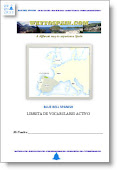Well, in my twenty years of experience as a Spanish teacher, I would like to appeal to your everyday common sense. Scientific research goes on specific variables, and those specific variables are affected by so many other specific variables that it is quite impossible to come to a definite answer regarding age and foreign language learning.
I have taught students from the age of 4 to the age of 80, and I have been just as impressed by their progress, no matter their age. As a teacher, all I have to do is consider the factors that are most beneficial for the particular students, and apply a method that is best suited to them. Obviously, a 70 year old will not enjoy jumping up and down, while singing and playing in Spanish, and this learning style will be quite detrimental to his or her progress. Yet, they can understand complex grammatical explanations, especially given in the appropriate context, and they can make communication leaps that a five year old couldn't accomplish, simply because the child does not even have that communicative ability in his/her own language.
So is age a factor in how fast a student can learn a language? My position, based on my experience as a teacher, as a mother who helped three children become bilingual, and as an academic researcher, is that age is not a factor in language learning ability. The most important factor to consider, that by all means supersedes age, is motivation. The more a language program is able to keep students interested in using the language, the more successful their language acquisition will be.
Hasta luego!



0 comments:
Post a Comment
Note: Only a member of this blog may post a comment.